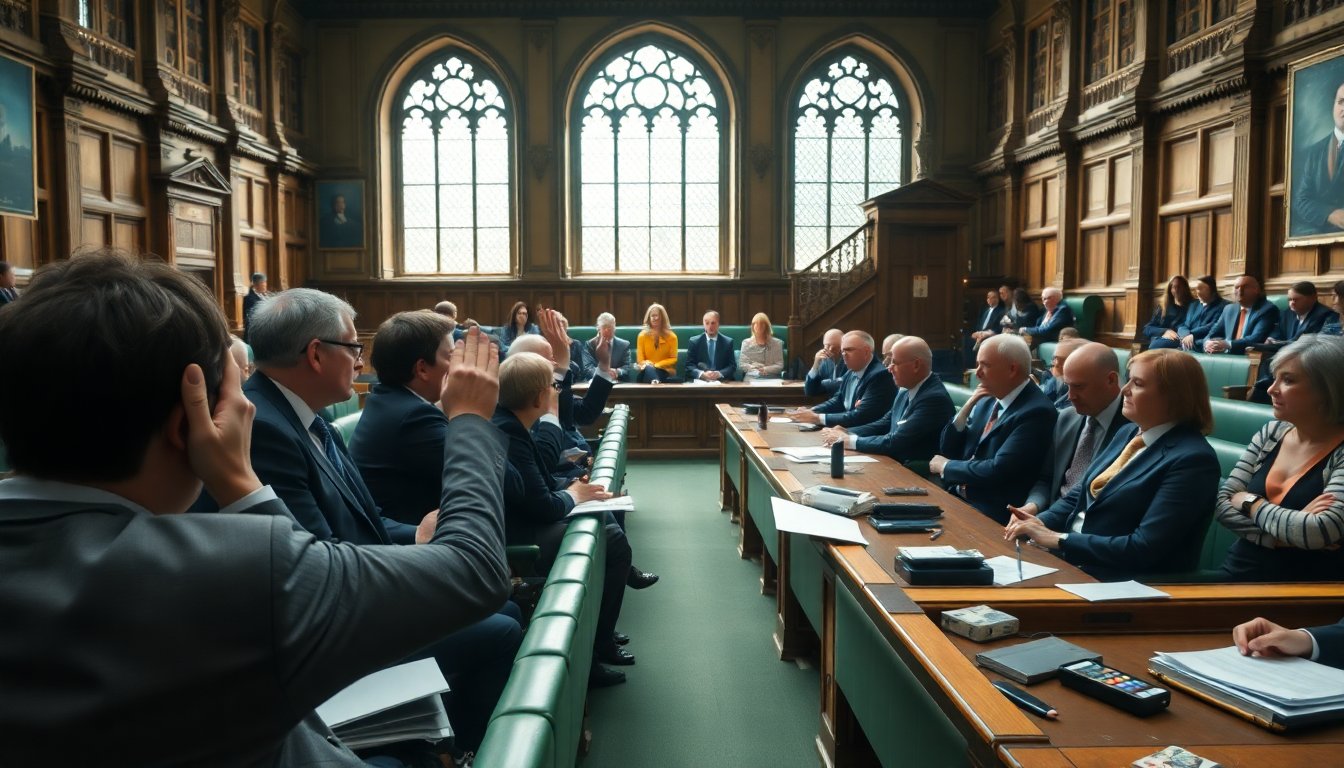Table of Contents
The atmosphere in the House of Commons during the latest Prime Minister’s Questions was charged as Prime Minister Keir Starmer and Tory leader Kemi Badenoch engaged in a fervent discussion about the impending budget. This session illuminated the political maneuvering and strategic posturing that characterize British politics, particularly in the lead-up to significant financial announcements.
Although Chancellor Rachel Reeves is set to unveil her second budget next week, Badenoch initiated the discourse by scrutinizing the government’s handling of income tax policies. This debate underscores the challenges and complexities surrounding fiscal strategies in contemporary politics.
Debate over tax policies
Badenoch targeted the recent U-turn regarding income tax, where the Chancellor had previously signaled intentions to increase rates, only to retract that statement. She pressed Starmer on the apparent inconsistency, questioning why he would propose raising taxes only to abandon the idea shortly thereafter. In response, Starmer emphasized that the actual budget announcement is still pending, suggesting that many discussions are speculative at this stage.
Setting the stage for the budget
The Chancellor broke with tradition earlier this month by delivering a pre-budget speech, which many viewed as a precursor to the official announcement. Badenoch criticized this decision, suggesting it created confusion regarding tax rates. “This budget seems to be disintegrating before it’s even revealed,” she asserted, reflecting the chaotic atmosphere surrounding the government’s fiscal plans.
As the exchange continued, Badenoch pressed for clarity regarding the freeze on income tax thresholds, which serves as a mechanism for increasing tax revenue by pulling more individuals into higher tax brackets. Starmer, however, remained evasive, reiterating that the budget’s details would not be disclosed until the official announcement next week.
Escalating tensions
The debate intensified as Badenoch accused Starmer of evading important questions, stating that the lack of transparency only fuels public distrust. She highlighted the Chancellor’s previous commitments to unfreeze income tax thresholds and questioned the reliability of her promises. Starmer, refusing to engage directly with her claims, redirected the conversation towards Badenoch’s tenure as a Treasury minister during a period marked by significant economic turmoil.
Political posturing and public impact
During the session, MP Jon Trickett also chimed in, advocating for measures to combat economic inequality. His comments were well-received, providing Starmer with an opportunity to address concerns about the budget’s potential impact on ordinary citizens. This interchange underscores the importance of addressing public sentiment as economic policies take center stage.
Despite the somewhat uneventful nature of the exchanges, both leaders managed to secure significant points. Badenoch effectively illustrated the disarray surrounding the income tax issue, while Starmer focused on the broader implications of the government’s economic track record. In this pre-budget skirmish, the two leaders laid the groundwork for what is expected to be a contentious budget announcement next week.
As the date approaches, the political landscape remains charged, with both parties preparing for a battle over the public’s perception of fiscal responsibility and governance.
Looking ahead
With days remaining until the budget reveal, ongoing debates and public statements will undoubtedly influence government perceptions. The challenges posed by rising inflation and the cost of living crisis will also significantly shape the conversation around tax policies. Starmer and Badenoch’s exchange serves as a reminder of the high stakes involved as both parties strive to define their positions and gain public support.


